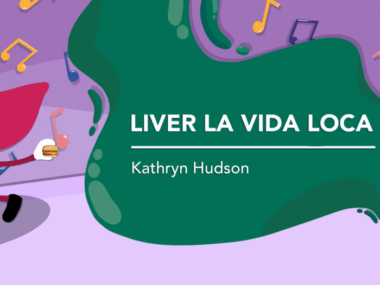Roche to acquire 89bio, will get pegozafermin for MASH in deal
Therapy being tested in 2 global trials for severe form of fatty liver disease
Written by |

As part of a merger deal, Roche will acquire 89bio and its treatment candidate pegozafermin — an injection therapy now being tested in two global clinical trials for metabolic dysfunction-associated steatohepatitis (MASH), a severe form of fatty liver disease.
Under the terms of the definitive merger agreement between the companies, Roche will buy 89bio for about $2.4 billion upfront. Once certain milestones are met, further payments may be made to 89bio’s stockholders, according to a Roche press release. The transaction is expected to close before the end of the year.
The deal will add pegozafermin to the pipeline at Roche, which, per the release, is seeking to target the causes of metabolic diseases linked to obesity.
“We are highly encouraged by pegozafermin’s potential to become a transformative treatment option in MASH, one of the most prevalent comorbidities [coexisting conditions] of obesity, and to meet diverse patient needs associated with this complex disease,” said Thomas Schinecker, CEO of Roche Group.
The company noted that pegozafermin is now in “late-stage development for MASH” as a treatment for individuals with moderate and severe fibrosis, or scarring.
Fatty liver disease occurs when fat builds up in the liver, oftentimes causing progressive damage to the organ. Clinicians classify cases based on the severity of the damage and on whether excess alcohol consumption is the root cause.
MASH is a serious type of fatty liver disease that is not related to alcohol consumption. In its earlier stages, the liver becomes inflamed. As the disease progresses, scar tissue can form in a process called fibrosis, which can affect liver function. The most advanced stage is cirrhosis, in which scarring becomes widespread and permanent, markedly impairing liver function.
ENLIGHTEN trials evaluating pegozafermin in overweight/obese adults
Pegozafermin, an experimental subcutaneous, or under-the-skin, injection therapy for MASH, mimics a signaling molecule called fibroblast growth factor 21 (FGF21). Naturally occurring FGF21 helps the body regulate energy use and fat storage. The lab-made version of the molecule in pegozafermin aims to reduce fat buildup in the liver, which drives MASH.
“With its combined antifibrotic and anti-inflammatory mechanism, pegozafermin could potentially offer best-in-disease efficacy [effectiveness] for all moderate to severe MASH patients,” Schinecker said.
The now-completed Phase 2b ENLIVEN trial (NCT04929483) tested three dosing regimens of pegozafermin in 222 overweight or obese adults with MASH-related fibrosis. The results showed that the proportion of participants experiencing a reduction in liver fibrosis after six months was higher among those receiving the therapy than in those given a placebo.
With its combined anti-fibrotic and anti-inflammatory mechanism, pegozafermin could potentially offer best-in-disease efficacy for all moderate to severe MASH patients.
Based on those findings, 89bio launched the ENLIGHTEN Phase 3 trial program. It comprises two studies, both of which are enrolling participants at sites worldwide. Similar to ENLIVEN, the ENLIGHTEN studies will test pegozafermin in overweight or obese adults.
ENLIGHTEN-Fibrosis (NCT06318169) is focusing on people with MASH who have fibrosis that hasn’t progressed to cirrhosis. It’s expected to enroll 1,050 patients.
Participants will be randomly assigned to receive, every other week, either a placebo or one of two possible doses of the therapy: 30 mg once weekly or 44 mg. Treatment will last for about one year.
Investigators will assess the proportion of participants experiencing a reduction in fibrosis without worsening MASH, and of those attaining MASH resolution without worsening fibrosis. The time until disease progression will also be assessed as a primary outcome metric.
ENLIGHTEN-Cirrhosis (NCT06419374) is enrolling patients with a confirmed diagnosis of compensated cirrhosis due to MASH, meaning there is permanent scarring but the liver is still able to function.
More than 750 people are expected to take part, and will receive injections of 30 mg of pegozafermin or a placebo, with treatment lasting up to five years.
During the first two years of treatment, researchers will record the proportion of participants whose fibrosis decreases. Throughout the whole treatment period, they will also look at the time until the disease progresses.
Trial results may support future applications for therapy’s approval
If positive, the results of these studies may support future applications seeking the approval of pegozafermin for MASH, according to the company.
Roche is also planning to explore the therapeutic potential of combination therapies involving pegozafermin and other candidates in its pipeline in the future.
“This acquisition further strengthens our portfolio in cardiovascular, renal, and metabolic diseases and offers opportunities to explore combinations with existing programmes in our pipeline,” Schinecker said.


